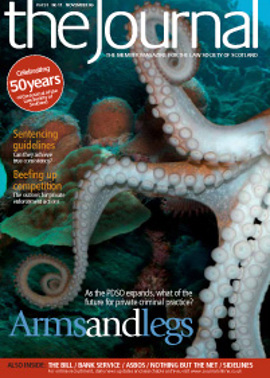Cash trapped

When planning a holiday abroad, one question is how much cash to take with you. At one time there was a regulatory limit on the amount of sterling you could take abroad. After the demise of that regulation, travellers’ cheques were introduced which made your money considerably safer, even if they could be less convenient than cash. Today, of course, most hotels on mainland Europe have room safes which allow a certain amount of cash to be carried safely. But perhaps the greatest advantage is the advent of the computer chip, which allows you to use your UK debit and credit cards in European ATMs.
For those of a more adventurous nature, however, there are still countries – many of them in eastern Europe – where there are no ATMs, where the facilities for cashing travellers’ cheques are virtually non-existent, and where websites recommend that you carry sufficient cash in the local currency. Suppose a family of four is planning a holiday in such a country. It would probably be necessary for them to carry cash in excess of the sterling equivalent of £1,000. In those circumstances another, more modern, regulation arises of which travellers ought to be aware.
This new regulation arises out of attempts to control the proceeds of crime. One of the most impressive aspects of this instrument is its ambit. It is supported by UK legislation and European directives, but also by a UN treaty and there are in fact task forces whose job it is to ensure that the anti-money laundering provisions cover as much of the world as possible – including faraway and unusual holiday destinations.
Moves and counter-moves
This new approach appears to be having results. As a response, in an attempt to evade the controls, those involved in money laundering have tended to reduce the amount of money that they courier around the world. The authorities in turn have lowered the minimum amount of cash in relation to which the preventive legislation will apply. In the UK, the Proceeds of Crime Act 2002 (Recovery of Cash in Summary Proceedings: Minimum Amount) Order 2006 has lowered the minimum to £1,000 with effect from 31 July 2006. (“Cash” is defined as including notes and coins in any currency, postal orders and cheques including travellers’ cheques.) Each country has a certain discretion in this area, but most have introduced legislation of a similar nature.
Taking a family on holiday to an unusual destination, and carrying the local currency equivalent of a sum in excess of £1,000 sterling, might therefore now present another consideration. It is more than likely, entering (and sometimes even leaving) such countries, that the traveller will be required to complete a form (with penalties for improper completion) in which they are asked to state how much “currency” (which might include travellers’ cheques) they are carrying. In any event, a traveller may be asked such a question by a customs or police officer. In many areas, the honest answer of a sum exceeding £1,000 could result in consequences.
Vacation vouching
In countries where legislation exists similar to the UK Proceeds of Crime Act, one of the main consequences is that the customs or police officer involved will then be in possession of certain additional powers. In the UK there is a code of practice governing the exercise of such powers (which includes an obligation to report “failed searches” to an “appointed person” who prepares an annual report for the Secretary of State) by those officers, but such codes are not universal. In essence, however, officers are directed to form a view as to the extent they feel that cash might be intended for use in unlawful conduct. A search of baggage may follow. Most regulations allow for detention of such cash for a period of 48 hours, after which application for further detention of cash and any further searches generally requires to be made to the local court.
Such proceedings would be an unfortunate start to any holiday, possibly leaving a family of four standing in a concourse without any available money, and it has been suggested that in order to placate and satisfy the inspecting officer, tourists should now carry plenty of documentation vouching the holiday nature of their visit and should also carry clear evidence of a very recent withdrawal from a bank account which can be identified as belonging to them, so that they can demonstrate the matching of the cash to the holiday.
Clearly, there is considerable potential for inconvenience from the over-zealous application of regulations, despite it being considered a small price to pay in the battle against drug trafficking, terrorism and crime generally. It is a factor which now requires to be borne in mind when holidaying with cash.
Richard N M Anderson, CA, advocate
In this issue
- Home and away
- The importance of kinship care
- Growing arms and legs
- Changing its spots?
- Guiding hand
- Trustbusters unite
- Closing the books
- Spam: the managed solution
- Nothing like Nothing but the Net!
- Banking on service
- You want certified?
- Enough is enough
- Provision and prejudice
- Work and families
- Cash trapped
- Man of business
- Scottish Solicitors' Discipline Tribunal
- Website reviews
- Book reviews
- Sale questionnaire to be tested
- So long, and thanks for all the fizz
- ASBO, the young misfit






